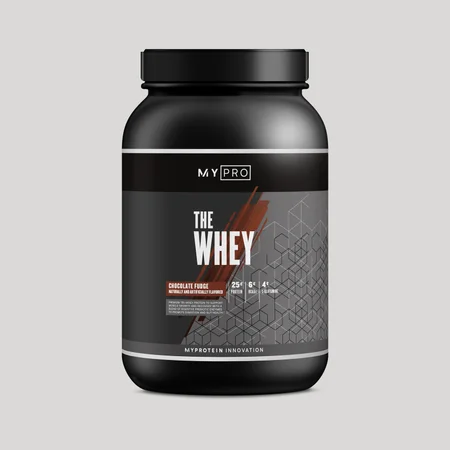
Whey protein is one of the most highly recommended and most regularly consumed supplements in the sports and fitness industry today. Many athletes consume and would recommend protein powder in order to meet the daily protein intake required to increase muscle growth and recovery.
However, with many different proteins on the market, how do you know what the differences between them all are? Two of the most popular protein powders available today are Whey and Whey Isolate.
So, with regards to Myprotein's range, what’s the difference between Impact Whey Protein and Impact Whey Isolate?

Whey vs. Whey Isolate
Although both Whey Protein and Whey Isolate are both derived from the same milk concentration, Whey Isolate is simply whey protein that has been filtered in a process to help remove the lactose in the powder itself. This is to create a leaner and lower fat protein source.
The main difference between whey protein and whey isolate is the 2 products offer different protein content, lactose and fat content per serving. Whey protein can offer anywhere between 10-15% protein content per serving with over 50% lactose and almost 2% fat. Whey protein isolate contains over 90% pure protein content with under 1% lactose or milk fat.
For anyone who is lactose intolerant or has issues digesting dairy products then whey isolate is very beneficial due to its lower levels of lactose.

Concentrate vs. Isolate
Whey Protein Concentrate can potentially cause bloating due to the lactose and carbs in the products. Whey protein isolate contains no, or very little lactose meaning the issue of bloating is avoided. Both whey concentrate and isolate will digest in the body at the same rate/speed and also contain the same amounts of amino acids (building blocks of proteins).
Isolate contains a slightly higher level of protein content per serving, so naturally, it will have a slightly higher amount of amino acids per serving. Let's have a look at the macronutrients of Impact Whey and Impact Whey Isolate.
| Macros | Impact Whey Concentrate | Impact Whey Isolate |
| Protein | 20 g | 21 g |
| Carbohydrates | 1.5 g | Less than 1 g |
| Fat | 1.8 g | 0 g |
As you can see there isn't much difference at all in protein content, only 1g per serving, but isolate contains no fat and barely any carbs.
Concentrate Or Isolate?
Both Concentrate and Isolate will provide the consumer with almost identical results when it comes to building muscle and supporting your training goals. The reasons people choose whey isolate over concentrate is due to the lower fat and carb content, and therefore lower calories content per serving.
If you are lactose intolerant then whey isolate is the protein powder for you. Just be careful not to buy a blend of whey isolate and concentrate, as this will remove the benefit of no lactose and lower fat and carb content.
If you are on a strict low-calorie diet or currently watching calories carefully to prepare for a bodybuilding show or competition, whey isolate will be the better product for you. If you aren’t worried about your current calorie consumption either whey protein concentrate or whey protein isolate will provide you with beneficial results.

Take Home Message
Essentially both concentrate and isolate are very similar in regards to nutrition. Isolate is a leaner choice and healthier one if you have issues with regards to bloating from dairy. If you are simply wanting to build a lean physique, either one of the two products will provide you with great benefits for muscle development, maintenance and growth.










